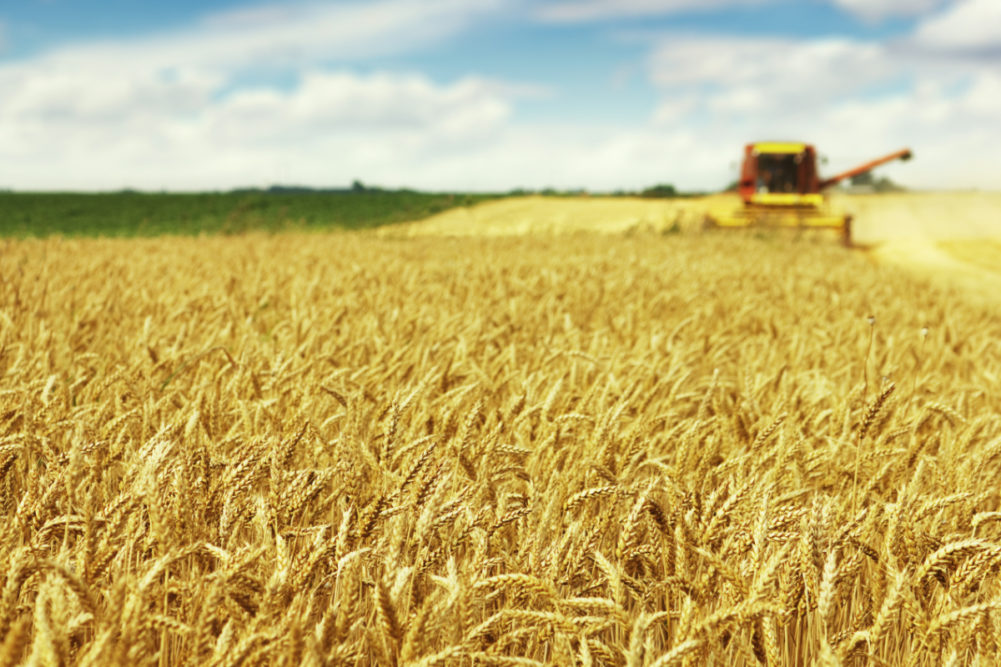KANSAS CITY, MISSOURI, U.S. — Food giant General Mills, Inc. collaborated with two dozen central Kansas winter wheat producers for a holistic farming pilot program to improve water quality in and around the Cheney Reservoir watershed, which provides water to more than 400,000 residents in Wichita, Kansas, U.S.
Regenerative agriculture methods were designed to protect and enhance natural resources. The practices are meant to pull the element carbon from the air and store it in the soil, reduce soil erosion, increase water infiltration and help the land become more resilient to the effects of extreme weather events.
The program intends to align measurement protocols for soil carbon and water quality with those being developed by the Ecosystem Services Market Consortium, a member-based industry collaborative focused on launching a national scale ecosystems services market for agriculture to recognize and reward farmers and ranchers for their environmental services to society. Growers opting into data tracking and field measurements will be among the first in the nation to be paid for sequestering carbon or improving water quality.
The Kansas Department of Health and Environment, a pilot partner, said its intent is to make agriculture the clean water solution at the 650,000-acre watershed, on which 99% of the land is used for agriculture.
“The goal of the pilot program is to encourage farming practices that improve both soil health and water quality in the Cheney Reservoir region such that agriculture is the solution to a more resilient and clean water supply for Wichita residents,” said Leo Henning, deputy secretary of the Division of Environment at the Kansas Department of Health and Environment. “We believe regenerative agriculture can improve the quality of this vital water source and if we are successful, it’s win-win-win, for farmers, communities and the environment.”
More than 150 participants at two-day Soil Health Academy seminars in November provided the selection pool for the pilot program. The 24 producers selected for participation will co-develop and initiate regenerative farming management plans with another partner, Fort Payne, Alabama, U.S.-based Understanding Ag.
Growers will be encouraged to continue their education via a “soil health academy” and have access to farmer-focused field days and a private social media group. The intent of the latter two is an ongoing exchange of ideas and best practices for aligning farm practices with a regenerative mindset. Program leaders hope region-specific learning will accelerate and be broadly shared among practitioners.
“The project represents an enormous opportunity to demonstrate the many on- and off-farm benefits of regenerative agriculture in wheat production, including increased farm profitability, improved resiliency and enhanced biodiversity,” said farmer Gabe Brown, co-founder of Understanding Ag. “Thanks to this partnership, UA’s regenerative-farmer consultants will work to ensure the successful and profitable adoption of critical soil health-improving practices on these farms.”
Another 18 winter wheat producers will get a chance to take part in studies of reduced- and no-tillage production, cover cropping and nutrient management as part of the Soil Health Partnership Associate Program, now in its second year.
Minneapolis, Minnesota, U.S.-based General Mills, a global food company that in fiscal 2019 generated net sales of $16.9 billion, operates a flour mill in Kansas City. The company said the regenerative agriculture pilot initiates practices with numerous long-term benefits for producers and their communities.
“This pilot is an important step in our commitment to advance regenerative practices on 1 million acres of farmland by 2030, but more so supports our belief that these practices can have long-term positive impact on farmer profitability, soil health, water quality and biodiversity,” said Mary Jane Melendez, chief sustainability and social impact officer at General Mills.




